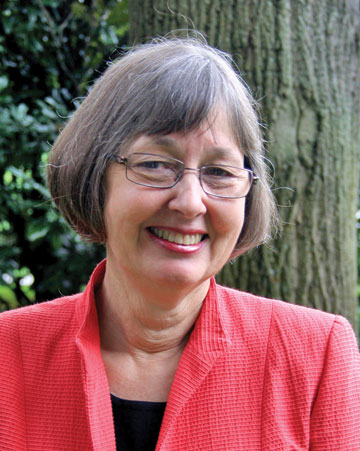
One of the pleasures I’ve enjoyed as president of In Trust has been privileged access to the worlds of other leaders. I’ve recently attended the annual gathering of the Fellowship of Evangelical Seminary Presidents, the Seminar for New Presidents hosted by the Association of Theological Schools, the Seminary Convocation of the National Catholic Educational Association, the annual meeting of the Association for Biblical Higher Education, and a roundtable for presidents and board chairs that In Trust cosponsored with the M. J. Murdock Charitable Trust. Aside from the jet lag, I’ve enjoyed these spirited gatherings of praying Christians who value and learn from each other — all for the sake of preparing ordained and lay Christian leaders.
In these many settings, I was reminded that schools able to employ a sufficient number of smart, skilled, and committed people enjoy considerable advantage. This is less an observation about the size and educational delivery systems of schools than it is a comment about how the right people — and enough of them — build institutional wisdom, responsiveness, and flexibility. Without them, we do not honor the high purposes of our institutions. I offer some examples of the difference that having enough of the right people can make.
With international students. Catholic seminaries — both at the postgraduate and college levels — have become international more quickly than most Protestant schools. As I have listened to seminary rectors describe how their schools are navigating both the quicksand of immigration regulations and the challenges of teaching seminarians from multiple countries, it’s become obvious that seminaries yoked to larger institutions like universities, missionary religious orders, or large dioceses have an advantage. Experienced legal teams, combined with a faculty with experience in cross-cultural teaching and formation, make it possible for these seminaries to thrive in ways that are more challenging for schools not connected to larger institutions. They simply have access to more of the right people.
With online teaching. Despite the hopes of many governing boards of struggling schools, online education is not always the solution to declining residential enrollments. Experience demonstrates that an institution must have the personnel to address the host of unanticipated challenges that emerge with new educational delivery systems. For example, computer hardware and software must be continuously updated and synchronized. Faculty teaching and student learning must be rethought and restructured. And new forms of outcomes assessment must be designed for teachers and students alike. Moreover, formation for pastoral ministry cannot be left to chance. More interaction, and therefore more human resources, not fewer, are required by high-tech educational delivery.
With recently embedded seminaries. I harbor a hope that the unions and reunions of seminaries with church-related colleges and universities may bring solutions for some of the economic challenges facing many small theological institutions. But seminaries and theological schools need not be the only beneficiaries of mergers and partnerships — they may also have gifts to offer. For one, theological faculties can provide an alternative to the purely “religious studies” approach offered by religion and philosophy departments at many church-related undergraduate institutions. They bring the capacity to form young Christians for their vocation in the world by modeling critical thinking in quest of Truth — a more positive relationship between faith and reason. Cynicism about Christianity often finds an easy hiding place on some church-related college faculties. Students and the churches deserve better.
Enough of the right people are essential to the future of Christian higher education, including theological education. If new institutional combinations ensure that more institutions will have the right people doing the right work, then the mission of the Gospel will be served, truly.